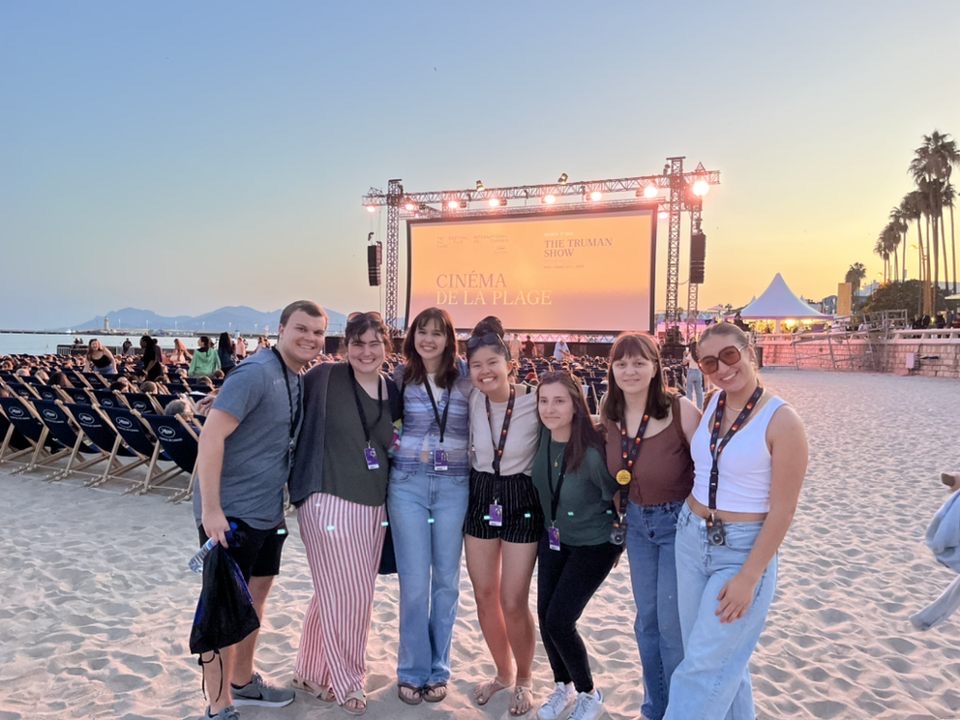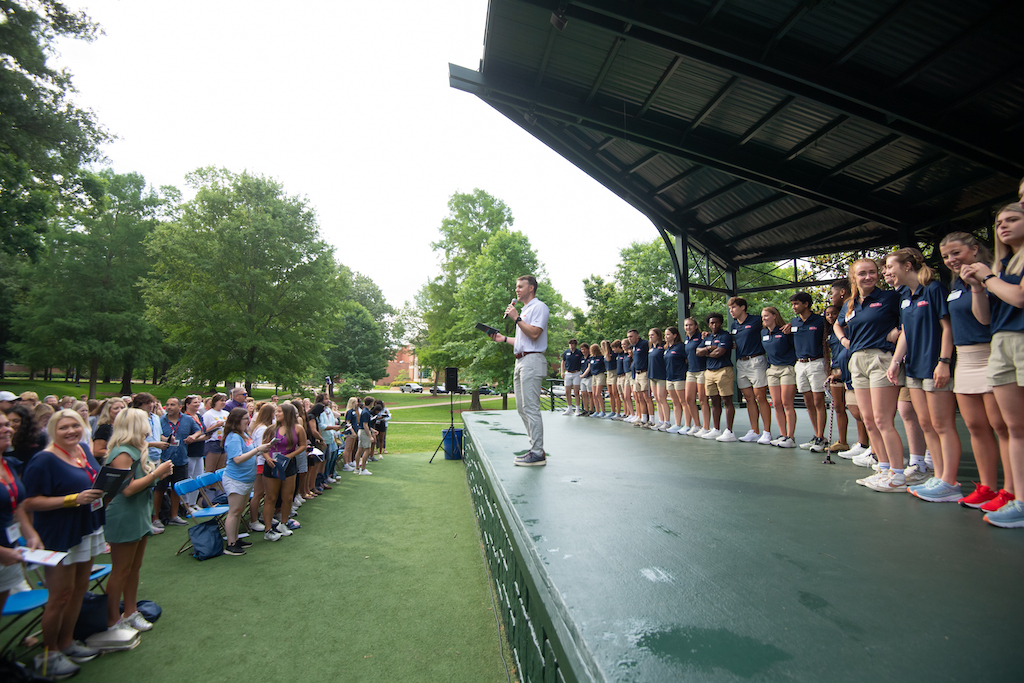
The Cannes Film Festival – the most prestigious cinematic festival in the world – celebrated its 75th anniversary this year, hosting dozens of film premieres for 40,000 attendees, including a lucky few University of Mississippi students led by Dr. Anne Quinney of the Modern Languages Department.
I am grateful to say I was one of those in attendance, completing an academic study abroad requirement while seeing 22 films in 12 days, in addition to experiencing the wonderful environment of Cannes and beyond.
Filmmakers from countries around the world gathered on the French Riviera to present their films to audiences, often for the first time. These 12 days spanned May 17-28, bookended by a star-studded opening ceremony and an award-granting closing ceremony.
This year’s international festivities shined an appropriate spotlight on the struggles of Ukraine, with President Volodymyr Zelenskyy delivering an impassioned virtual speech at the opening ceremony.
“Will the cinema keep quiet or will it speak up?” Zelenskyy said. “Everything depends on our unity.”
Zelenskyy’s sentiment can be traced in many of the provocative films showcased, from the Romanian drama “R.M.N.,” which explores the devastating effects in a town ripped apart by xenophobia, to the powerful documentary “How to Save a Dead Friend,” which captures the perils of Russian youth amidst an increasingly powerful dictatorship.
This collective call for unity also coincided with a collective call for the value of the theatrical experience, with audiences consistently proving that there is, perhaps, no greater sanctum for unity than that of a movie theater.
My screening of the excellent Swedish satire “Triangle of Sadness” — eventual winner of the Palme D’or (Cannes equivalent of Best Picture) — was particularly exciting, as the crowd raucously laughed and cheered throughout, matching the energy of a Marvel movie on opening night.
This adrenaline-fueled atmosphere carried us through the two weeks, with a schedule that entailed waking up at 8 a.m. to reserve the day’s screening tickets, traveling by bus or foot from theater to theater, living off a high-volume baguette diet and enduring the occasional wait line for high-profile titles.
Did I wait five hours to see the world premiere of Baz Luhrmann’s “Elvis?” Yes, I did. And it was worth every second.
With Austin Butler and Tom Hanks’ “Elvis” promotion and Tom Cruise’s appearance at the premiere of “Top Gun: Maverick,” the red carpet was particularly star-studded. Our group even was lucky enough to attend the premiere of the South Korean political thriller “Hunt,” where we found ourselves mere rows from “Squid Game” star Lee Jung-jae.
In between the controlled chaos, we marked time for unwinding, exploring the neighboring cities of Antibes and Grasse, and catching the occasional classic movie as part of the special “Cinéma de la Plage” presentation, including the likes of “The Truman Show” (1998) and “This is Spinal Tap” (1984), with the latter presented in-person by its director, Rob Reiner.
As I look back, I remain astonished and grateful for the opportunity to attend Cannes, living out one of my lifelong film fanatic dreams and what I refer to as a borderline-spiritual experience.
At a screening of “The Last Movie Stars,” a documentary by Ethan Hawke, the famed actor-director summed it up best as he amusingly said, “This is the church of my choice, right here. And you are my congregation!”
















